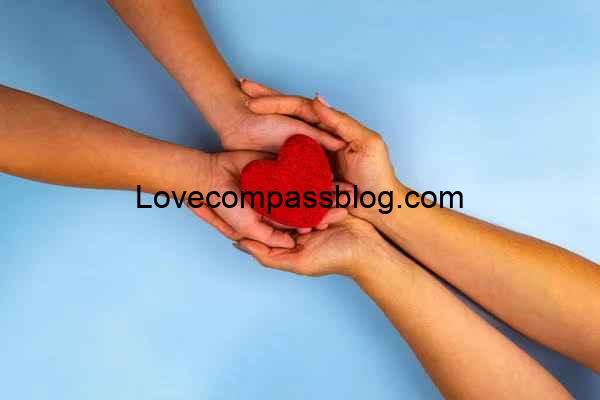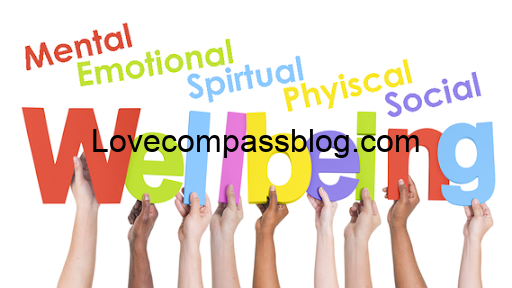The Role of Gratitude in Strengthening Relationships

Relationships, whether romantic, familial, or platonic, thrive on mutual respect, care, and appreciation. In many instances, gratitude becomes the key driver that nurtures these relationships, enhancing emotional intimacy and fostering a deeper connection. Gratitude, in its simplest form, is the act of acknowledging and appreciating the value someone brings into your life. It’s an emotional response that can transform the dynamics between two people, leading to stronger bonds and long-term satisfaction. This article explores the profound role gratitude plays in strengthening relationships, backed by research, experiences, and practical applications.
Gratitude in Relationships

Gratitude is often regarded as a fundamental pillar in maintaining the health of a relationship. By regularly practicing gratitude expression, individuals actively acknowledge their partner’s contributions and efforts, reinforcing the emotional connection that exists between them. Thankfulness in relationships transcends superficial gestures and taps into deeper emotional wells, driving relationship satisfaction. When both partners feel appreciated, the foundation of the relationship becomes more secure, and emotional intimacy flourishes.
Gratitude activates positive emotions, which can lead to healthier interactions and better conflict resolution. It has been noted that couples who make a habit of thanking each other, even for small, everyday acts, report higher levels of happiness and trust. This is because appreciation for small acts reinforces a sense of value and reduces feelings of being taken for granted. Ultimately, this practice helps strengthen the emotional fabric of the relationship, ensuring both partners feel seen and valued.
The Power of Gratitude in Relationships

Gratitude carries a unique power in relationships because it builds stronger bonds between partners. When two people express mutual appreciation, they create a cycle of emotional reinforcement, which helps to sustain the relationship through both good times and bad. Mutual respect and empathy in relationships are essential, and gratitude is often the driving force behind these qualities. By acknowledging each other’s contributions, both partners feel more emotionally supported and connected.
Gratitude also promotes relationship growth by encouraging open communication and vulnerability. When partners feel appreciated, they are more likely to invest in the relationship emotionally. Over time, gratitude helps to cultivate a culture of emotional appreciation, where both individuals consistently recognize the value of one another’s presence and actions. This emotional currency builds relationship resilience, which is particularly important during challenging periods. In fact, gratitude in conflict resolution can act as a calming force, helping to diffuse tensions and realign the focus toward positive, constructive dialogue.
Gratitude’s Role in Relationship Building and Maintenance

The ongoing success of any relationship is contingent on how well both partners maintain their emotional connection. Gratitude in marriage or long-term partnerships is often the glue that holds the relationship together through life’s ups and downs. Regularly practicing gratitude encourages mindfulness, allowing both partners to stay focused on what’s working rather than what’s lacking. It is this practice of emotional appreciation that leads to relationship satisfaction and long-term fulfillment.
The appreciation for partner fosters a sense of mindfulness in relationships, where both individuals take time to recognize the efforts and sacrifices made by their partner. This approach enhances healthy communication, making it easier for couples to navigate misunderstandings and disagreements. When gratitude is practiced regularly, it encourages a culture of positive reinforcement, wherein partners are motivated to continue acts of kindness and support. This cycle builds relationship resilience, making it easier for both individuals to work through conflicts while maintaining their emotional bond.
In maintaining relationships, expressing gratitude should be intentional. Simple acknowledgments, like thanking your partner for their daily efforts, are often more impactful than grand gestures. Over time, these acts of appreciation become habitual, fortifying the emotional core of the relationship and promoting relationship growth.
Gratitude Practices for Couples

There are several ways couples can integrate gratitude practices into their daily routines to foster emotional intimacy and deepen their connection. One of the most effective methods is to maintain a relationship gratitude journal, where both partners regularly document things they appreciate about each other. This simple practice helps couples stay mindful of the positive aspects of their relationship and reduces the focus on conflicts or minor annoyances. A gratitude journal not only helps to boost emotional well-being but also serves as a tangible reminder of the love and support both partners provide.
Other gratitude rituals include daily or weekly check-ins, where couples take a moment to express what they are thankful for in their partner. Whether it’s a heartfelt thank you for a kind gesture or acknowledging a partner’s emotional support during tough times, these small moments of appreciation go a long way in building relationship satisfaction.
Acts of kindness are another practical way to practice gratitude. These can range from simple gestures, such as making your partner their favorite breakfast, to more deliberate actions, like planning a surprise date or offering emotional support during difficult times. The key is to ensure that these acts are genuine reflections of your appreciation for your partner’s presence in your life. Through daily gratitude practices, couples can build a robust emotional connection that withstands the test of time.
Expressing Gratitude in Relationships: Techniques and Examples

There are many ways to express gratitude verbally, and each can significantly impact the emotional health of the relationship. A simple “thank you” can go a long way, especially when it’s said with sincerity. Whether it’s for a mundane task, like taking out the trash, or for emotional support during a rough day, expressing gratitude makes your partner feel acknowledged and appreciated.
In moments of tension, gratitude in conflict resolution can be a powerful tool. When an argument arises, it can be difficult to see beyond the disagreement. However, by expressing appreciation for your partner’s positive traits or actions during these moments, you can shift the conversation toward more constructive ground. For example, acknowledging that your partner always listens, even when disagreements happen, can diffuse tension and redirect the focus to emotional bonding.
In addition to verbal expressions, romantic gratitude gestures can be a beautiful way to show appreciation. Leaving a handwritten note, surprising your partner with their favorite treat, or planning an evening to celebrate their hard work are examples of how small, thoughtful actions can strengthen emotional connection. Incorporating relationship gratitude affirmations into your daily interactions can also reinforce positive behaviors and keep the relationship focused on mutual appreciation. Aligning gratitude with your partner’s love language ensures that your expressions of thanks resonate on a deeper emotional level, further enhancing emotional fulfillment.
The Impact of Gratitude on Relationship Strength and Happiness
The consistent practice of gratitude has been shown to significantly strengthen relationship resilience and improve overall relationship happiness. By focusing on the positive qualities and actions of your partner, you can build a relationship founded on emotional closeness and mutual trust. Gratitude helps create a sense of relationship harmony, where both individuals feel valued, respected, and understood.
When gratitude becomes a natural part of your daily interactions, it creates an environment that promotes relationship well-being. Partners who regularly show appreciation for each other’s efforts and emotional support are more likely to experience long-term happiness and satisfaction. Furthermore, relationship strength is directly tied to how often couples express gratitude. It fosters trust building and deepens the emotional connection, providing a buffer against life’s inevitable challenges.
The emotional benefits of gratitude extend beyond the immediate relationship. Studies have found that practicing gratitude leads to improved mental health, reduced stress, and greater feelings of overall happiness. This is because gratitude shifts your focus from what’s missing in your relationship to what’s present and valuable. This positive mindset not only strengthens your relationship but also improves your overall well-being.
Benefits of Gratitude in Relationships

The benefits of gratitude in relationships are numerous and well-documented. One of the most significant advantages is that gratitude fosters a deeper sense of emotional fulfillment in both partners. Feeling appreciated helps individuals feel secure in their relationship, which leads to greater relationship satisfaction.
Additionally, gratitude has been shown to reduce relationship stress. When both partners focus on the positive aspects of their relationship, it becomes easier to navigate conflicts and challenges. Acts of kindness and expressions of thanks promote a healthy relationship dynamic, encouraging partners to continue supporting each other emotionally and physically.
Gratitude also builds lasting bonds. By regularly expressing appreciation, couples reinforce their commitment to one another, creating a stable foundation for long-term happiness. Cultivating appreciation for small acts ensures that the relationship remains grounded in positive emotions, even during difficult times.
Overcoming a Lack of Gratitude in Relationships
Sometimes, relationships fall into a routine where a lack of gratitude becomes the norm. This can lead to feelings of neglect or emotional disconnect, as one or both partners begin to feel underappreciated. However, it’s possible to overcome this lack by intentionally reintroducing gratitude into the relationship. One way to do this is by starting small, offering verbal acknowledgments for even the smallest acts of kindness.
A relationship gratitude journal can be an effective tool for couples looking to repair their emotional connection. By writing down moments of appreciation, partners can shift their focus from negative patterns to positive reinforcement. Over time, this practice helps rebuild empathy in relationships and promotes a stronger emotional bond.
Reintroducing positive reinforcement through acts of kindness and appreciation can help heal any emotional rifts caused by neglect. Even if gratitude has been absent from a relationship for a while, it’s never too late to start again. By focusing on small, meaningful expressions of thanks, couples can restore emotional bonding and rekindle their connection. Over time, these small gestures can accumulate, leading to significant improvements in the overall health and strength of the relationship.
Rebuilding trust also plays a critical role in overcoming a lack of gratitude. When one or both partners feel taken for granted, feelings of resentment can build. Gratitude helps to diffuse this by acknowledging the efforts and sacrifices made by both individuals. Trust can be regained through consistent expressions of appreciation, which pave the way for emotional healing and relationship repair. Being open and honest about the need for more gratitude in the relationship can also lead to clearer communication and a renewed sense of purpose.
Gratitude and Happiness in Relationships
There’s a profound connection between gratitude and happiness in relationships. Studies have consistently shown that gratitude promotes feelings of well-being and contentment, not just for the individual practicing it but also for the recipient. In relationships, happiness is often a byproduct of positive reinforcement and the emotional security that comes from feeling appreciated.
When couples engage in gratitude practices, they often report higher levels of relationship happiness and emotional fulfillment. This is because gratitude reinforces positive behaviors, making both partners feel valued and supported. Regularly expressing appreciation creates a positive feedback loop, where both individuals are motivated to continue showing kindness and affection toward one another. In turn, this strengthens the emotional intimacy of the relationship and promotes lasting happiness.
Additionally, gratitude helps couples focus on the present moment, reducing the tendency to dwell on past conflicts or future worries. By appreciating what you have in your relationship right now, you cultivate a sense of emotional stability, which enhances overall happiness. This practice of staying present and thankful for your partner’s contributions can also lead to increased relationship satisfaction, making both individuals feel more fulfilled and content.
The Role of Gratitude in Promoting Long-Term Relationship Success
The long-term success of any relationship hinges on how well both partners can sustain emotional connection and mutual respect. Gratitude plays a pivotal role in ensuring that these elements remain intact over time. By consistently showing appreciation, couples build a strong emotional foundation that can withstand the inevitable challenges that come with long-term relationships.
Sustaining long-term relationship success involves fostering emotional intimacy through regular expressions of gratitude. Over the years, it’s common for couples to fall into routines where the small acts of kindness they once appreciated go unnoticed. However, keeping gratitude at the forefront of your interactions ensures that both partners feel valued, preventing feelings of neglect or resentment from taking root. This ongoing acknowledgment of each other’s efforts creates a relationship resilience that helps couples navigate conflicts and stressors more effectively.
Moreover, gratitude promotes relationship longevity by reinforcing emotional bonding. When couples practice gratitude consistently, they are more likely to stay connected emotionally, even during difficult times. This emotional connection is what drives the success of long-term relationships, as it encourages both partners to invest in their relationship’s growth and well-being.
Conclusion: Why Gratitude is Essential for Relationship Strength
In conclusion, gratitude plays a transformative role in strengthening relationships by fostering emotional intimacy, promoting mutual respect, and encouraging positive reinforcement. Whether expressed through small daily gestures, heartfelt words, or more significant acts of kindness, gratitude helps to build a solid foundation of trust and emotional support. Couples who prioritize gratitude in their interactions are more likely to experience long-term happiness, relationship satisfaction, and resilience in the face of challenges.
Now that you know the profound impact of gratitude on relationships, it’s time to start implementing these practices in your own life. Whether through maintaining a gratitude journal or simply taking the time to acknowledge your partner’s efforts, every expression of thanks contributes to the overall strength of your bond. So take the first step today—express gratitude and watch your relationship thrive.





